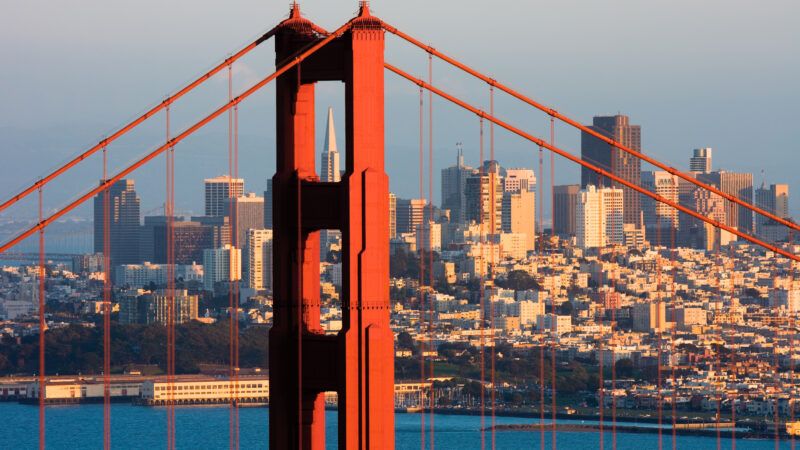San Francisco Gets $20 Million Zoning Reform Grant the Same Week It Halts New Housing For Casting Shadows
This is the second RAISE grant San Francisco has received since the Biden administration retooled the program to reward jurisdictions for adopting zoning reforms.

In late June, the San Francisco Board of Supervisors voted to halt ten new townhomes in the city's Nob Hill neighborhood, citing the need for additional environmental review of the shadows the homes would cast on an adjacent park.
The next day, the U.S. Department of Transportation announced that San Francisco would be getting $20 million from a grant program that the Biden administration had allegedly retooled to incentivize zoning reforms and housing production.
That grant, from the Rebuilding American Infrastructure with Sustainability and Equity (RAISE) program, will pay for additional bus lanes, bike lanes, and road widenings in the city's Bayview neighborhood.
This is the second RAISE grant that San Francisco has received since the Biden administration announced back in May 2022 that the program would be used to "reward jurisdictions that have reformed zoning and land-use policies" as part of its Housing Supply Action plan.
Grant applicants for RAISE and several other transportation grants would receive additional points on their application for detailing zoning changes they'd made to facilitate more housing construction, said the White House.
The first grant San Fran received—$23 million for road narrowing and bike lane additions on the city's Howard Street—was announced in August 2022. That award came a couple of days after California housing officials announced they were launching a first-of-its-kind investigation of San Francisco's housing policies and practices to determine if it was violating state law in shooting down so many projects.
Those who follow San Francisco development battles will know that city politicians have repeatedly halted the approval of housing projects over their potential shadow impacts. Most infamously, one property owner in the Mission District was ordered to complete three separate shadow studies in his quest to turn his laundromat into an apartment building.
Earlier this year, San Francisco received state sign-off on its plan to facilitate the construction of 82,000 new homes over eight years through changes to its zoning code and permitting processes. That raised the hopes of some housing reformers that the city government had turned a corner on its NIMBY ways.
The Board of Supervisors' vote against the Nob Hill project shows the city is sticking to its same old dirty tricks. The city's RAISE grant shows that it'll be continually rewarded by the feds for doing so.
In our federal system, there's obviously only so much the federal government should do to incentivize local governments to change their land use regulations.
But far from inappropriately strong-arming local officials with the power of the purse, the Biden administration is committing an arguably worse sin. It's using a program it has committed to the cause of zoning reform to subsidize the country's highest-profile housing policy bad actor.
That's a terrible signal to send. It tells all other zoning reform–adverse politicians and policy makers that they too can be handsomely rewarded with federal tax dollars while continuing to cynically shoot down sorely needed, privately sponsored, zoning-compliant housing projects.
The Biden White House's initial proposal to tie transportation spending to zoning reform was an interesting idea. Critics cautioned that retooling existing programs with priorities other than zoning reform would likely be ineffective. Increasingly, it's looking like this part of the Housing Supply Action plan is actively counterproductive.
Rent Free is a weekly newsletter from Christian Britschgi on urbanism and the fight for less regulation, more housing, more property rights, and more freedom in America's cities.


Show Comments (22)